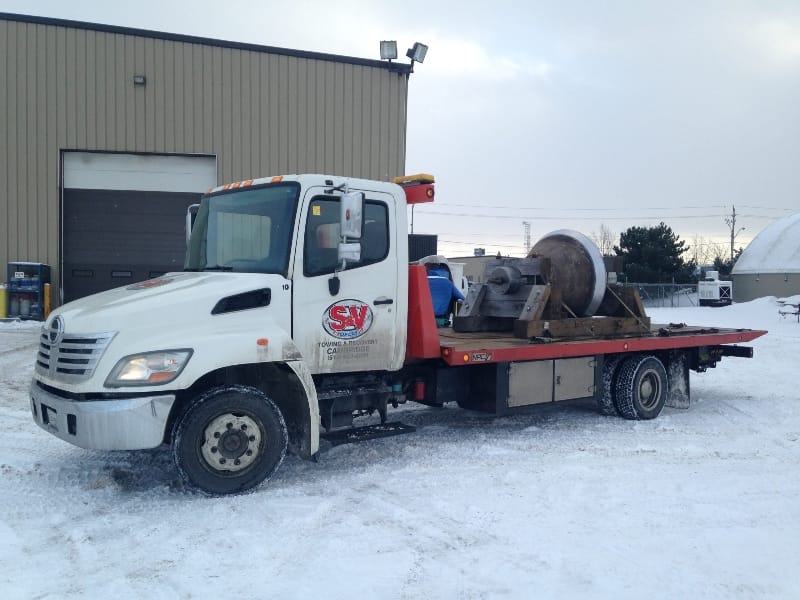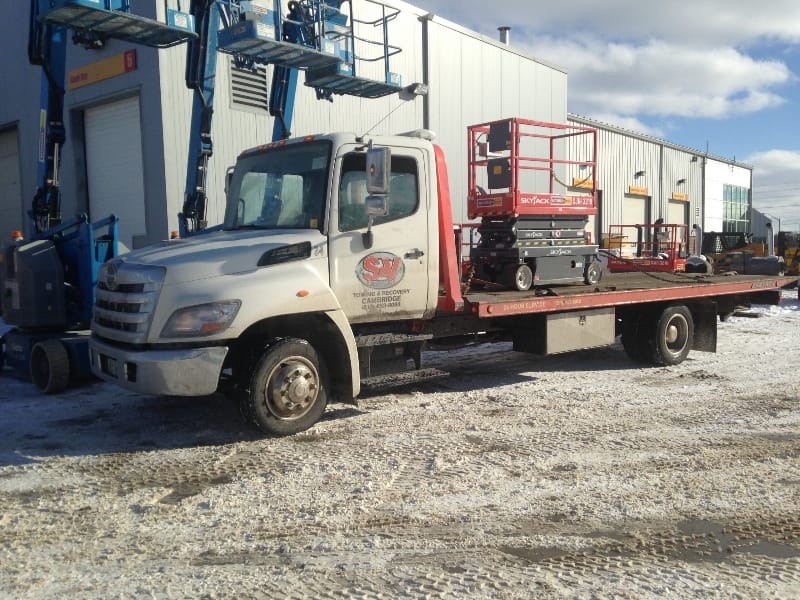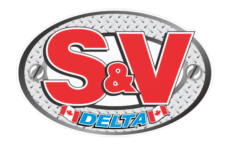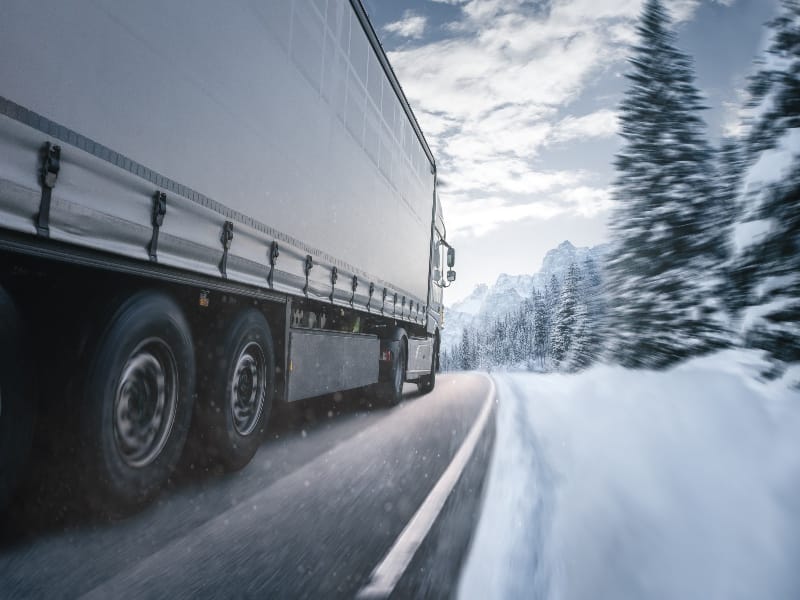Frozen Roads, Heavy Loads
Winter roads can turn routine drives into hazardous situations, especially for larger vehicles like lorries and buses. When snow piles up and ice coats every surface, recovering stranded vehicles becomes an intense mix of skill, strategy, and sheer determination. For our Cambridge heavy recovery team, towing in these conditions means navigating extreme weather, unpredictable terrain, and high-risk scenarios. Let’s take a closer look at how our tow truck operators rise to the challenge of heavy towing in snow and ice, ensuring safe and effective results in even the harshest conditions.

The Challenges of Snow and Ice
Snow and ice create more than just slippery roads. They complicate every step of a recovery operation. For starters, vehicles often slide into dangerous positions, such as steep embankments or deep snowbanks. Roadside conditions may also worsen with drifting snow or compacted ice.
Add to that the weight of larger vehicles—lorries, buses, or fully-loaded vans—and you’ve got a scenario where basic towing simply won’t cut it. Recovery teams must carefully assess each situation. Here’s why:
- Frozen surfaces reduce traction for tow trucks.
- Heavy vehicles sink deeper into snow, requiring advanced pulling methods.
- Cold weather can affect both vehicle components and recovery equipment.
All of these factors make any of our Cambridge heavy recovery efforts in winter one of the toughest jobs around.
Winter Recovery
Pulling a lorry out of a snowy ditch isn’t the same as towing on dry pavement. The right approach can make the difference between a smooth operation and added damage.
Securing Traction
Tow trucks often use snow chains or studded tires to grip icy roads. Without traction, pulling heavy vehicles becomes almost impossible. Crews may also clear ice and snow around the recovery zone to create a stable working surface.
Calculating Pull Strength
Recovery specialists assess the vehicle’s weight, position, and level of entrenchment before hooking up. For heavy towing, winches and cables need to match or exceed the weight of the stranded vehicle. Snow and ice add extra resistance, so calculations must be precise.
Using Winch Angles
Adjusting the angle of a tow line helps prevent sliding. Our Cambridge heavy recovery team often set up snatch blocks to reroute cables, ensuring vehicles can be pulled upward without tipping.
Working in Teams
Winter recovery demands coordination. Operators work closely with spotters to guide the recovery process safely. Communication becomes even more vital in low-visibility snowstorms.
Staying Safe During Recovery
Safety is always the top priority. Ice-coated roads mean tow trucks and operators are at risk of slipping or losing control. To stay protected:
- Recovery teams wear insulated gear and slip-resistant boots.
- Tow trucks position themselves on flat, stable ground whenever possible.
- Operators inspect cables and hooks for frost damage before use.
One overlooked aspect is weather forecasting. Teams monitor conditions to anticipate hazards, such as sudden temperature drops that create black ice. In towing, no day is like the other, and our Cambridge heavy recovery operators know the importance of planning for the unpredictable.

Trust S&V Delta for Reliable Cambridge heavy recovery
Winter heavy duty recovery may look challenging, but the right expertise makes it manageable. S&V Delta has built its reputation on tackling these conditions head-on. Whether it’s freeing a lorry stuck in a snowbank or navigating icy rural roads, the heavy towing team relies on experience and precision to get the job done. Cambridge heavy recovery takes more than just brute strength—it demands adaptability and quick thinking, especially in snow and ice.
If you ever find yourself stranded this winter, rest assured that our Cambridge heavy recovery team has the heavy duty towing tools and knowledge to help you get moving again.


